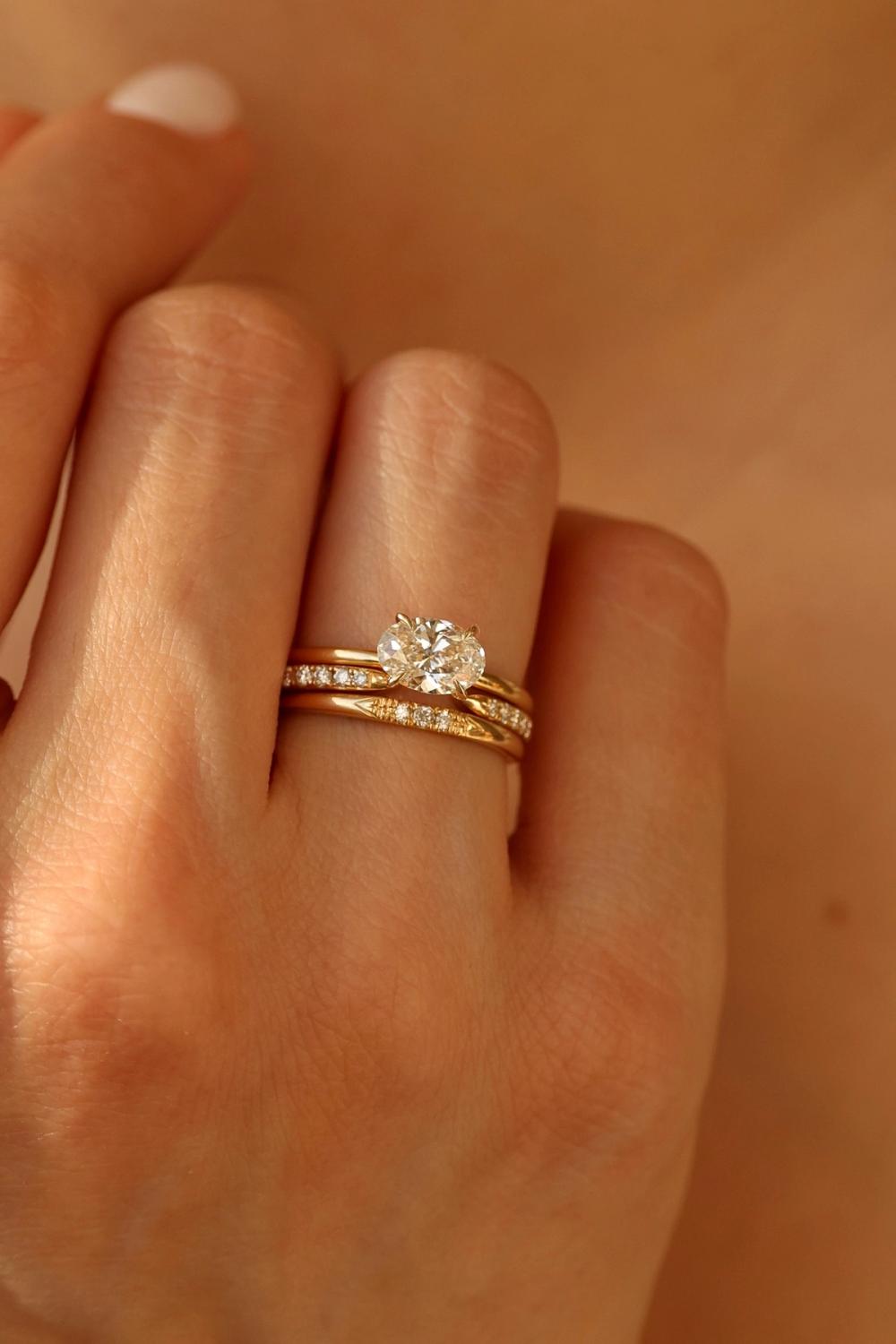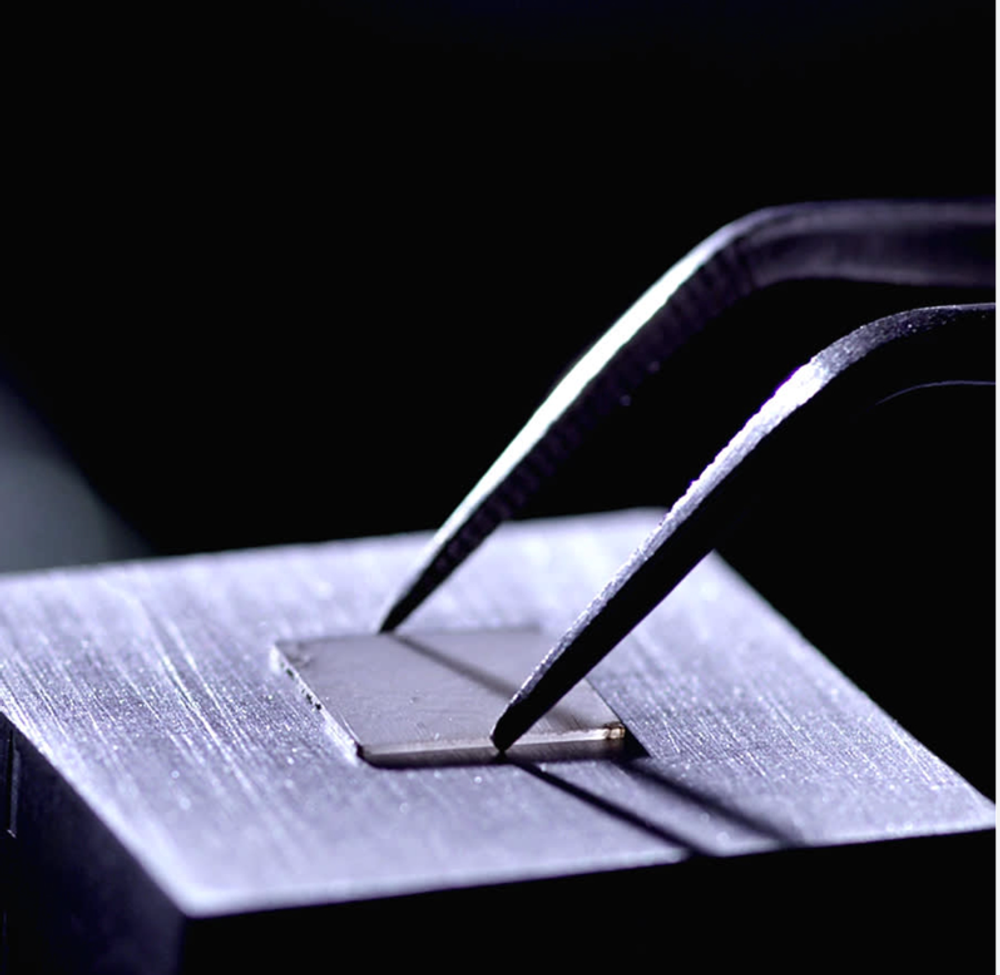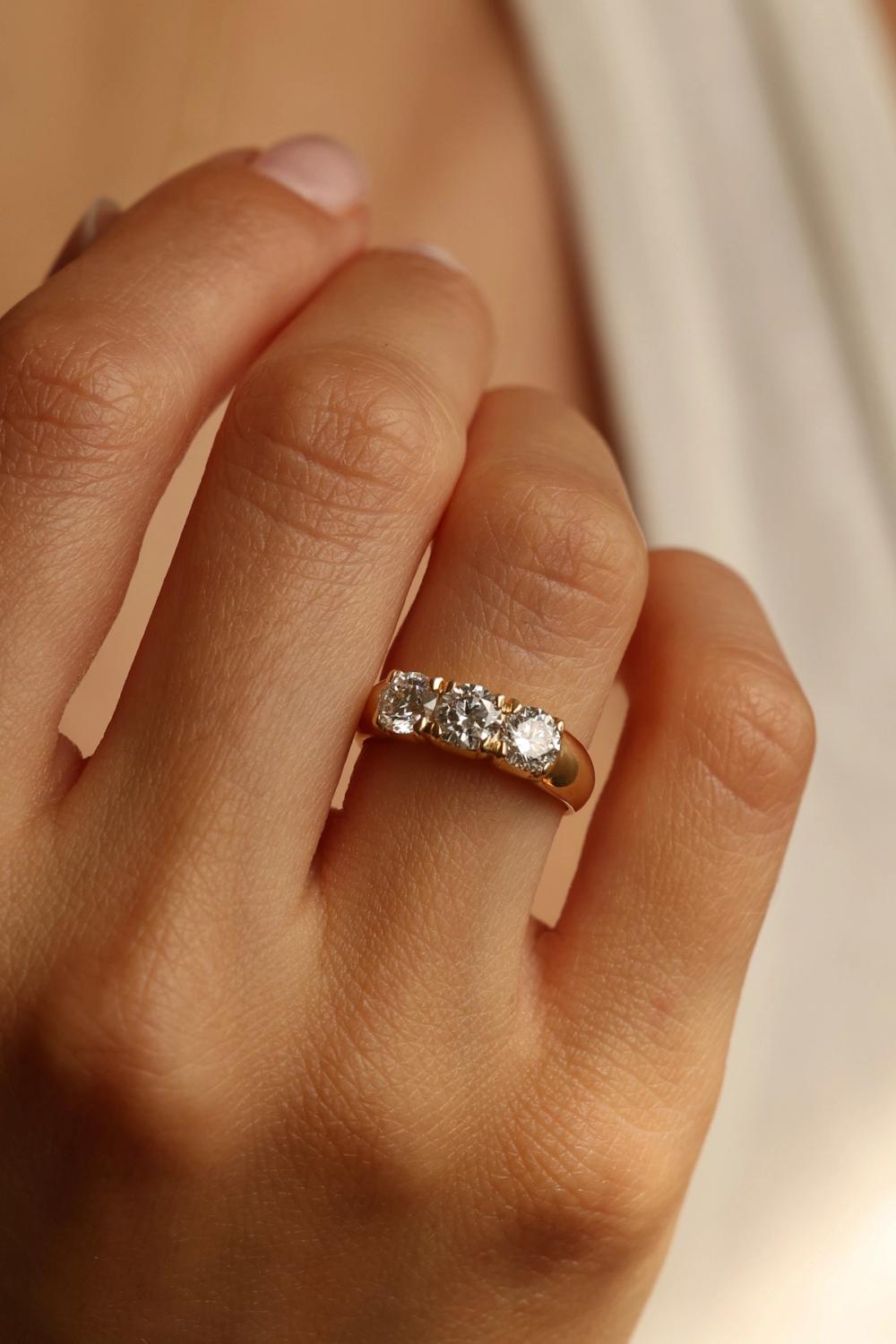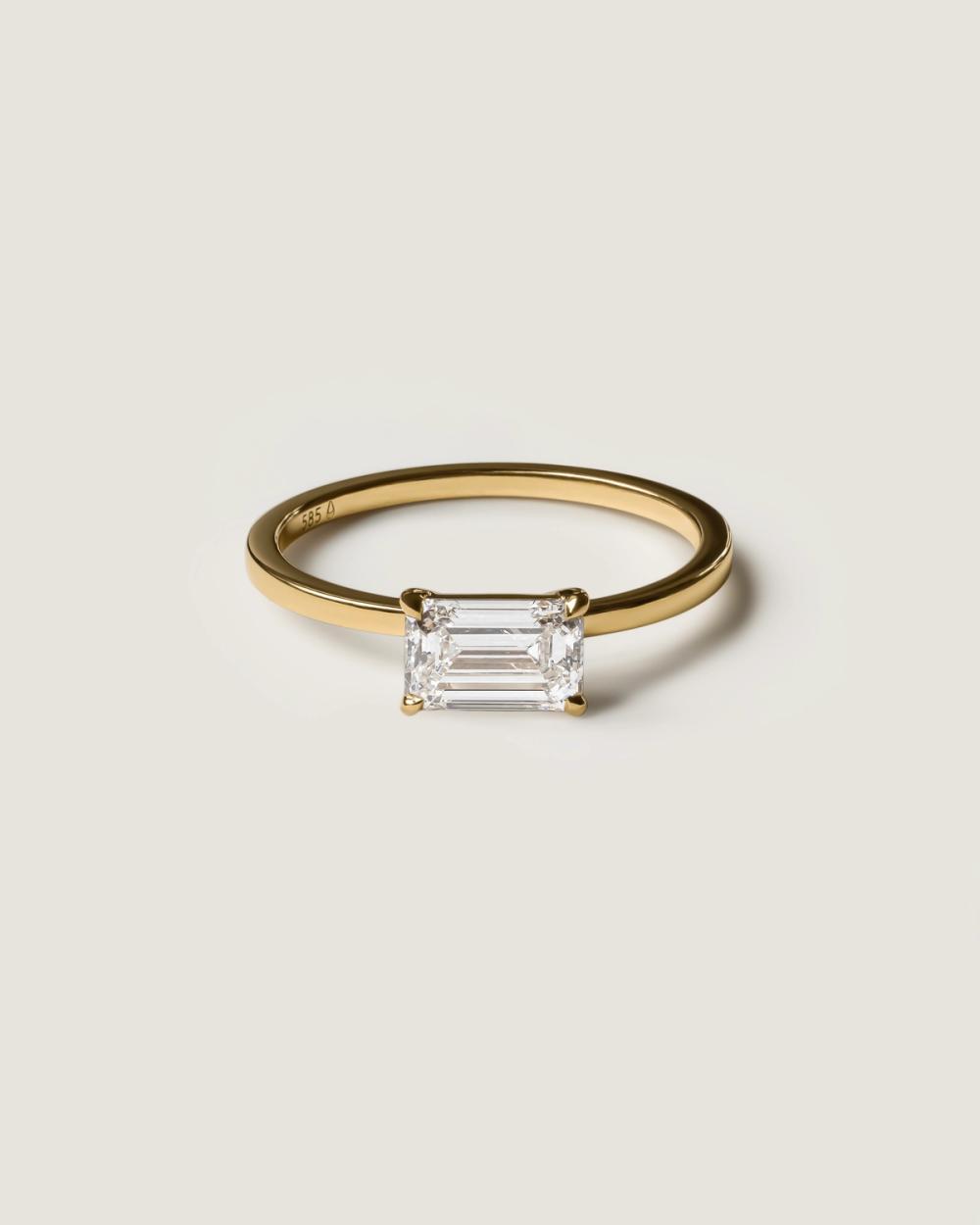Language and currency settings
Change your language and currency settings by selecting your preferences below
Select currency
Select language
From the Lab to Your Finger: The Journey of a Lab-Grown Diamond
Lab-grown diamonds are the future of jewelry, offering consumers a beautiful and sustainable alternative to mined diamonds. But how exactly do these diamonds come to be, and what makes them so special? In this article, we'll explore the journey of a lab-grown diamond from its inception in a state-of-the-art laboratory to its eventual home on the finger of a lucky customer.

Above: Our beautiful Big East-West Oval Swan stacked together with Diamond Snake Tail and Baby Diamond Band
It all starts with a diamond seed
A diamond seed, in the context of lab-grown diamonds, refers to a small piece of carbon that serves as the foundation for the growth of a larger diamond crystal. It's an essential component in the process of creating lab-grown diamonds through a method called Chemical Vapor Deposition (CVD) or High Pressure High Temperature (HPHT).
Learn more about CVD and HPHT here!

Above: a diamond seed before being placed in the reactor
The diamond seed acts as a nucleus or starting point for the growth of a new diamond. In the CVD process, a diamond seed is placed in a controlled environment where carbon-rich gases are introduced. These gases break down, and the carbon atoms start to bond and crystallize on the surface of the diamond seed, gradually forming a larger diamond. Similarly, in the HPHT process, the diamond seed is exposed to high temperature and pressure, causing carbon atoms to bond and crystallize into a larger diamond structure around the seed.

Above: Diamond Trinity Ring
Read more about the process of making a Lab-Grown Diamond here!
The quality and properties of the initial diamond seed can influence the final outcome of the lab-grown diamond, including factors like size, shape, and even the presence of any impurities. Therefore, selecting a suitable diamond seed is a crucial step in the creation of high-quality lab-grown diamonds.
Perfecting the diamond
Once the diamond crystal has been formed, it is carefully removed from the reactor and cut and polished to reveal its full beauty. The cutting and polishing process is just as important for lab-grown diamonds as it is for mined diamonds, as it determines the diamond's final appearance and clarity.
Read more on why we exclusively use lab-grown diamonds.

Above: Big East-West Emerald Swan
At this stage, the lab-grown diamond is thoroughly inspected and evaluated to ensure that it meets the highest standards of quality. This includes grading for carat weight, color, clarity, and cut, as well as several other technical criteria. Only diamonds that meet these rigorous standards are selected for use in our jewelry collections.
Setting the beauty
Finally, the lab-grown diamond is set into a piece of jewelry, where it will bring beauty and brilliance to its owner for a lifetime. Unlike mined diamonds, which are often associated with human rights abuses and environmental damage, lab-grown diamonds are a sustainable and ethical choice, offering customers peace of mind as well as exceptional beauty.

Above: Our stunning Swan Collection
The journey of a lab-grown diamond is a testament to the power of modern technology and the commitment of jewelry brands to offer customers the best possible products. Whether you're looking for a stunning engagement ring, a breathtaking piece of jewelry, or simply a unique and beautiful item to add to your collection, our lab-grown diamonds are an excellent choice, offering the beauty and brilliance of mined diamonds with the added benefits of sustainability and ethical sourcing.
Join the Nangi family!
Read similar posts






Join the Nangi family!
Subscribe to our newsletter to be the first to know when we release new one-of-a-kind pieces, and gain exclusive access to secret sales and events
Norsk side
Nangi Fine Jewelry © 2024